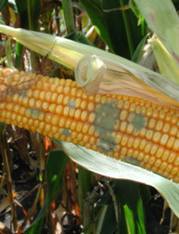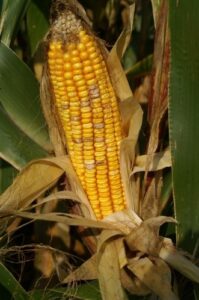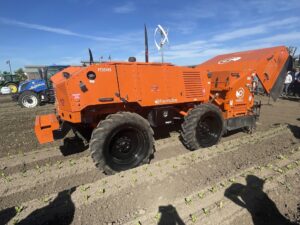September 28, 2022. There has been a significant area placed under quarantine in Lancaster County East Lampeter Township. Read below to refresh on the rules when driving into a HighPath Quarantine Area.
For those traveling to Lancaster County for equipment, supplies and feed, be aware of the 20km zone that includes areas near Ephrata, New Holland, Gap, Quarryville, and Manhiem locations; and the 10km zone that includes Lancaster and Stroudsburg areas; and the epic-center 3km zone.
Secretary Fisher has sent along the PADLS quarantine map to Ag Agents, you can contact your Ag agent for a copy of the map. The map when it is updated, can also be found at: https://padeptag.maps.arcgis.com/apps/webappviewer/index.html?id=a9066a3d68a443a08043766cb84bf4ae
“Migration season is underway and the virus is obviously in the environment. Please ensure all your poultry caretakers are practicing their best biosecurity, especially regarding using clean and dedicated footwear when entering the poultry houses.”- PADLS
Earlier this year….
As of 5/11/2022: The PA Department of Agriculture, via communications from Kevin D. Brightbill, DVM | State Veterinarian | Director is requesting continued compliance of the agriculture industry at large with the General Quarantine Order; Virus Control for Highly Pathogenic Avian Influenza Poultry, Poultry Litter, Conveyances, Feed, Refuse, Containers and Material Standards for the existing control zones established in Lancaster and Berks County.
There is an Interstate (existing or carried on between states) and General Quarantine Order in effect in Pennsylvania; specific to Virus Control for Highly Pathogenic Avian Influenza Vehicle, Container and Material Standards that is critical to abide by to prevent introduction of High Path. The specifics of “following the conditions and requirements of this Interstate and General Quarantine Order Order related to vehicles and products being transported including other domestic animals” can be found in the Pennsylvania Bulletin Volume 52 Issue 18 52 Pa.B. 2597 General Quarantine Order; Virus Control for Highly Pathogenic Avian Influenza Poultry, Poultry Litter, Conveyances, Feed, Refuse, Containers and Material Standards.
https://www.pacodeandbulletin.gov/Display/pabull?file=/secure/pabulletin/data/vol52/52-18/637.html
New Jersey agriculture producers, please be mindful of these efforts as you travel in and out of the location of the current quarantine area (10 kilometer radius) as shown in the PA DEPT AG MAP https://padeptag.maps.arcgis.com/apps/webappviewer/index.html?id=a9066a3d68a443a08043766cb84bf4ae.
Elsewhere in the region, please consider how you can help reduce potential spread as you travel to and from agriculture service centers in the region.
To stay up to date on the quarantine restrictions and recommendations related to disinfecting transportation vehicles and conveyances, please join the weekly Pennsylvania High Path Avian Influenza call by contacting Jennifer Reed – Harry, Penn Ag Industries at Email: jrharry@pennag.com
NJ Poultry Producers. To participate in the next South-Jersey Poultry Association monthly webinar with guest veterinarians from either USDA or state agencies, contact Melissa Bravo at the Salem County Extension Office.
 Multiple Northeast SARE (Sustainable Agriculture Research and Education) grant recipient Tommye Lou Rafes, of T.L. Fruits and Vegetables in West Virginia, is sharing her experiences to help other farmers experiment with new ideas through the Farmer Grant program.
Multiple Northeast SARE (Sustainable Agriculture Research and Education) grant recipient Tommye Lou Rafes, of T.L. Fruits and Vegetables in West Virginia, is sharing her experiences to help other farmers experiment with new ideas through the Farmer Grant program.
 Aspergillus mold species often show up after drought conditions, posing a significant risk of aflatoxins in the corn crop if present. Aspergillus molds are carcinogenic to people and cause losses in livestock and poultry. Combine operators and elevator operators should take precautions against inhaling fungal spores. Signs of Aspergillus ear rot include evidence of powdery olive-green mold on the ear tip or on kernels in the ear.
Aspergillus mold species often show up after drought conditions, posing a significant risk of aflatoxins in the corn crop if present. Aspergillus molds are carcinogenic to people and cause losses in livestock and poultry. Combine operators and elevator operators should take precautions against inhaling fungal spores. Signs of Aspergillus ear rot include evidence of powdery olive-green mold on the ear tip or on kernels in the ear.


 Weed management in vegetables can be difficult due to a shrinking labor pool, which is becoming more costly to source, and a lack of effective herbicides. Research and extension efforts must focus on integrating novel weed technology into current crop production systems. Autonomous and semi-autonomous robotic weed control technology has been implemented by some vegetable growers, mainly in the Western US, but is not universally available to or adapted by many producers. This survey is designed to new tools of interest (e.g. precision sprayers or cultivators, electrical weeders, drones, etc.) for managing weeds in cole crop and leafy green systems as well as the environmental, physical and economic barriers to adoption. The results of this survey will benefit vegetable growers by enabling the research team to develop relevant and realistic research efforts informed by the needs of and constraints faced by our local stakeholders. Specifically, we will use survey data to develop a multi-regional USDA grant proposal to bring grower-specified technology to each our states for evaluation and demonstration under a variety of commercial conditions and provide growers with an economic assessment of their performance relative to current best management practices.
Weed management in vegetables can be difficult due to a shrinking labor pool, which is becoming more costly to source, and a lack of effective herbicides. Research and extension efforts must focus on integrating novel weed technology into current crop production systems. Autonomous and semi-autonomous robotic weed control technology has been implemented by some vegetable growers, mainly in the Western US, but is not universally available to or adapted by many producers. This survey is designed to new tools of interest (e.g. precision sprayers or cultivators, electrical weeders, drones, etc.) for managing weeds in cole crop and leafy green systems as well as the environmental, physical and economic barriers to adoption. The results of this survey will benefit vegetable growers by enabling the research team to develop relevant and realistic research efforts informed by the needs of and constraints faced by our local stakeholders. Specifically, we will use survey data to develop a multi-regional USDA grant proposal to bring grower-specified technology to each our states for evaluation and demonstration under a variety of commercial conditions and provide growers with an economic assessment of their performance relative to current best management practices.
